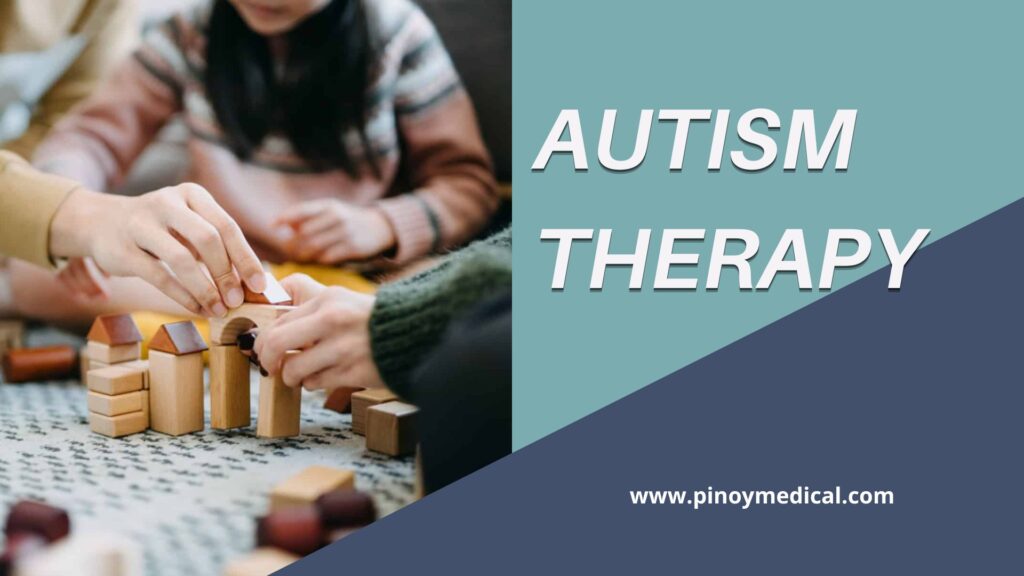Autism therapy seeks to strengthen the social, behavioral, verbal, and occupational skills of individuals with autism. It offers tailored solutions to improve everyday life skills, social engagement, and communication. Benefits include enhanced quality of life, more autonomy, and enhanced societal integration, all of which help people with autism realize their maximum potential.
Autism Therapy Price
The price per session for autism therapy usually varies between ₱600 and ₱1,500, contingent on the type of treatment, duration of the session, and experience level of the therapist. Longer treatment times may affect overall expenses. Deals and discounts are available from certain hospitals, and PhilHealth might pay for some of the costs. To efficiently control therapeutic costs, inquire about specific pricing, discounts, and package choices from local hospitals and clinics.

Popular Hospitals that Offer Autism Therapy
The cost of autism therapy varies between hospitals for a variety of reasons, such as the kind of therapy provided and the therapists’ level of experience. In general, government hospitals are less expensive than private ones. It is a good idea to ask about costs and any applicable discounts before selecting a therapy choice. The famous medical facilities listed here provide autism therapy.
| Hospitals/Lab | Location | Contact | |
| Bacoor Doctors Medical Center | Molino Blvd, 4102 Bacoor | (046) 4166275 | [email protected] |
| MCU Hospital | MCU Hospital, EDSA, Caloocan City, Metro Manila | +632 3672031 to 45 | [email protected] |
| Cebu Doctors University Hospital | Osmeña Blvd, Cebu City, 6000 Cebu | (045) 9612616 | [email protected] |
| The Medical City | Upper Ground Floor, The Annex Building SM North Quezon CityWellness Zone 2/F Sm City Novaliches, San Bartolome, Novaliches, Quezon City | (02) 89881000 | [email protected] |
| FEU – NRMF Medical Center | 19 Regalado Ave, Novaliches, Quezon City, 1118 Metro Manila | (02) 34270213 | [email protected] |
| Batangas Medical Center | Bihi Road, Kumintang Ibaba, Batangas | (043) 7408307 | [email protected] |
| Unihealth Southwoods Hospital and Medical Center | Lot 3 Block 11 Southwoods Ecocentrum Business Park, Brgy. San Francisco, Biñan City, Laguna, Binãn | 09253105666 | [email protected] |
| Davao Doctors Hospital | Davao Doctor’s Hospital, 118 E. Quirino Avenue G/F, DDH Oncology Building, Davao City, Philippines | (082) 2228000 | [email protected] |
| Cardinal Santos Medical Center | 10 Wilson, Greenhills West, San Juan, 1502 Metro Manila | (02) 87270001 | [email protected] |
| Providence Hospital | 1515 Quezon Ave, Diliman, Quezon City, 198702 Metro Manila | (02) 85586999 | [email protected] |
Video about Autism Therapy
FAQs
What age is appropriate to start autism therapy?
It is imperative to intervene early. As early as 18 months, or even earlier if autism symptoms are identified, therapy can start. But people of any age can benefit from treatment as well.
How much time does therapy for autism usually last?
The length of therapy varies based on the requirements and development of the individual. While some people might benefit from brief interventions, others would need to continue therapy far into their adolescence and adulthood.
What aims does autism therapy seek to achieve?
Enhancing social connection, decreasing disruptive behaviors, raising independence in day-to-day activities, and encouraging academic and professional achievement are some of the objectives.
Who offers therapy for autism?
Professionals having training in autism therapy, such as behavior therapists, occupational therapists, speech-language pathologists, and psychologists, are usually assigned to treat patients with autism spectrum disorders.
What can I anticipate from an autism therapy session?
Depending on the needs and objectives of each individual, sessions may include based on play interventions, behavioral therapy, organized activities, and social skill practice. Parents or other caregivers may also receive advice and comments from therapists.
How can I locate a licensed therapist for autism?
Seek out therapists who have received education and have expertise in working with people who have autism. Consult medical experts, autism associations, or support groups for recommendations. Take compatibility, proximity, and experience into account.
How can I monitor my child’s development in therapy?
By establishing clear, quantifiable objectives, recording your child’s successes and setbacks, and keeping in contact with therapists to modify interventions as necessary, you can monitor your child’s growth.


